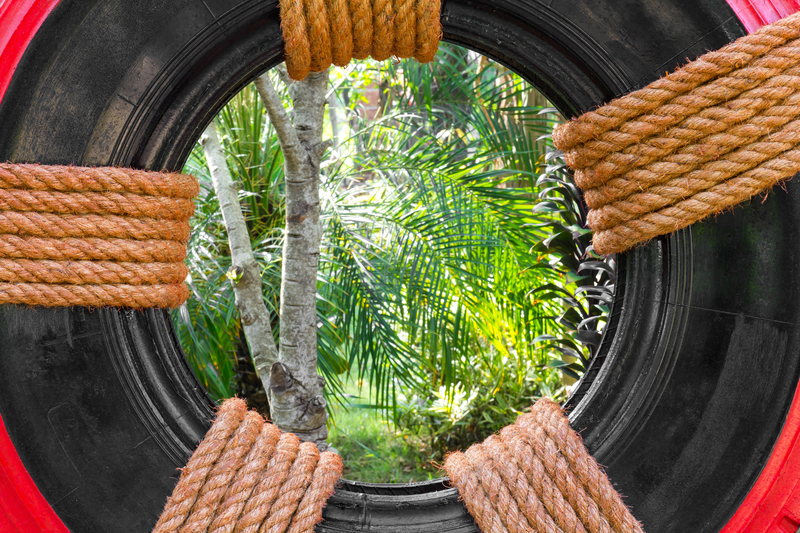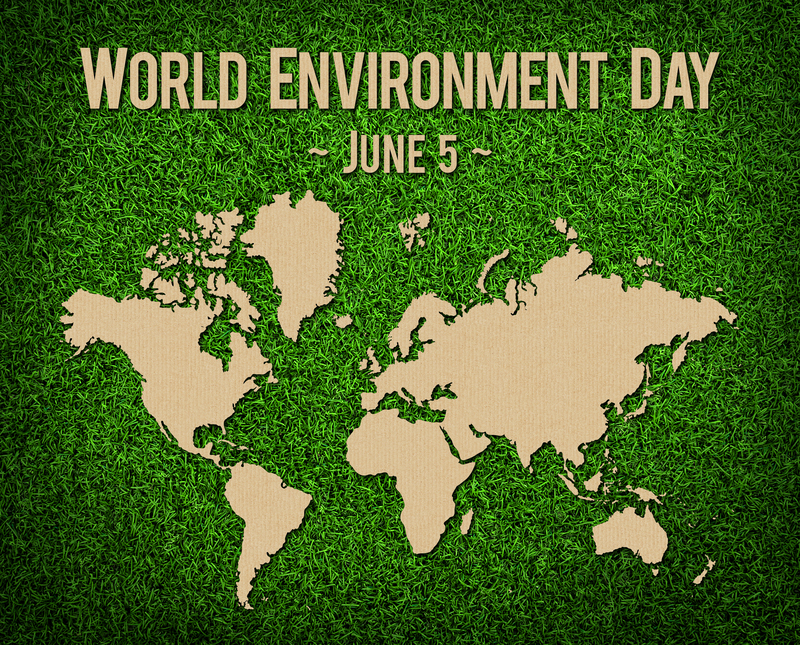Uncovering the Best Local Options for Disposing of Cookware Responsibly
When it's time to replace your well-used pots, pans, or mismatched cookware, proper disposal can be challenging. Many people ask: What's the best way to get rid of old cookware? Should these items go to the landfill, be donated, or recycled? In this comprehensive guide, we unveil the most effective and environmentally friendly local options for responsibly disposing of your unwanted cookware. Whether you want to declutter sustainably or simply upgrade your kitchen, read on to discover the right route for you and your community.

Why Responsible Cookware Disposal Matters
The urge to toss old pots and pans in the trash may be strong, but doing so can have lasting environmental impacts. Traditional landfills are overflowing, and throwing away cookware made from metals, plastics, and ceramics prevents valuable materials from being reused or recycled. Proper cookware disposal helps:
- Reduce landfill waste
- Conserve resources through recycling
- Support local charities and communities
- Minimize environmental pollution
Furthermore, some pots and pans with non-stick coatings or damaged material may leach chemicals into the environment unless handled correctly.
Let's explore eco-conscious ways for cookware removal that benefit both you and the planet.
Evaluating Your Old Cookware: Can It Be Reused, Recycled, or Donated?
Before pursuing disposal, take a moment to evaluate the condition of your cookware:
- Is it still functional?--No major cracks, peeling, or warping?
- Can you remove burnt or stuck-on food with some scrubbing?
- Is the handle secure and safe?
If safe for use, many unwanted pots and pans could be appreciated in a new home. If not, many reputable avenues for recycling or specialized disposal exist locally.
Best Local Options for Disposing of Cookware Responsibly
1. Donate Usable Cookware to Charities, Shelters, and Thrift Stores
If your kitchen items are still in good shape, consider donating cookware to a charitable organization. Many families and individuals need basic kitchen supplies. Shelters, community kitchens, or local thrift shops (like Goodwill or Salvation Army) often gladly accept:
- Stainless steel pans
- Ceramic or glass bakeware
- Cast iron pots and skillets
- Pots and pans with securely attached handles
Prior to donation, wash and dry each piece thoroughly. Call ahead or check the organization's website for guidelines (some may not accept certain materials, like Teflon).
2. Sell or Give Away Old Cookware Locally
If you have a higher-quality set or recognizable brand, you might want to sell your old cookware through local marketplaces like:
- Facebook Marketplace
- Craigslist
- Nextdoor
- Yard or garage sales
Alternatively, try Freecycle or community swap groups so your unwanted pots and pans find a new grateful owner without contributing to landfill waste.
3. Metal Scrap Yards and Municipal Recycling Centers
If your cookware is beyond use, many scrap metal facilities and municipal recycling centers accept certain kitchenware for recycling. Most cookware--including stainless steel, copper, aluminum, and cast iron--can be recycled as scrap metal. Top tips for metal cookware recycling:
- Remove non-metal parts. Disassemble or detach plastic, rubber, or wooden handles for pure-metal recycling.
- Clean the item. Rinse off heavy residue or burnt food to avoid contamination.
- Check local guidelines. Contact your city's recycling program to ensure acceptance, as rules vary by location.
*Note: Non-stick or Teflon-coated pans often require special disposal and may not be accepted in standard recycling streams. Check ahead to avoid accidentally contaminating a metal batch.*
4. Specialized Recycling Programs for Non-Stick Cookware
If you're disposing of non-stick pans (like Teflon or ceramic-coated cookware), local options may be limited due to the chemical coating. However, some brands and recycling drop-offs handle these:
- Brand Take-back Programs: Brands such as TerraCycle, Calphalon, and GreenPan offer mail-in recycling or trade-in initiatives for old cookware (conditions apply).
- Household Hazardous Waste Events: Some cities host seasonal programs for disposal of items not accepted curbside--check with your local waste authority.
- Specialty Recyclers: Certain eco-friendly companies partner with retailers for in-store cookware drop-off. Ask at local hardware or home goods stores.
Taking the extra step to dispose of non-stick pans properly helps keep harmful chemicals out of the waste stream.
5. Upcycling and Creative Reuse
Get crafty! If you're feeling creative, old cookware can be upcycled into planters, bird feeders, wall art, or storage bins. Communities often have makerspaces or art centers happy to accept donations for projects.
- Turn an old skillet into a rustic clock
- Use an obsolete colander as a decorative hanging basket
- Transform pots into planters for gardens or balconies
*Upcycling gives new life to old items, reducing environmental impact and inspiring creativity.*
What About Glass, Ceramic, and Enamel Cookware?
Glass, ceramic, and enamel cookware cannot be recycled through standard curbside bins because they have different melting points and chemical compositions compared to regular glass or metal recyclables.
Try these alternative responsible cookware disposal options:
- Donate if safe and intact. No chips, cracks, or sharp edges
- Check local household waste events. Some municipalities accept these items during special collections
- Use for garden decor or craft projects.
- Inquire at building material reuse centers for possible repurposing
How to Find the Best Local Cookware Disposal Options Near You
It's essential to find local responsible cookware disposal solutions tailored to your area. Here's how:
- Research your local waste management authority--Most cities and towns list recycling centers, accepted materials, and hazardous waste schedules online.
- Use online tools--Websites like Earth911.com, Recycling Locator, or municipal directories let you search by ZIP code for drop-off locations.
- Call nearby scrap yards or thrift shops--Confirm what types and brands of cookware they accept.
- Ask about mail-in recycling programs--Some cookware manufacturers provide nationwide mail-in options.
- Participate in community events--Seasonal "clean-out" or recycling days let you drop off hard-to-recycle goods.
FAQs: Responsible Cookware Disposal
Can you recycle non-stick cookware?
Typically, non-stick pots and pans are difficult to recycle conventionally. The chemical coatings can contaminate metal recycling. Specialized drop-offs, hazardous waste events, or brand mail-in initiatives are the best disposal routes.
What do I do with cookware that's unsafe for donation or recycling?
If cookware is broken, severely warped, or has sharp cracked edges, it is generally considered household waste. However, always consult your local waste authority--they may have recommendations or direct you to a relevant hazardous waste program, especially for items with chemical coatings.
Are there any cookware brands that take back old items?
Yes! Brands like Calphalon, GreenPan, and Circulon sometimes offer trade-in or mail-in recycling services for used cookware, typically when you purchase a new product from them. Check the brand's official website or speak with customer support for details.
Do any stores accept cookware for recycling?
Large hardware or kitchen supply stores sometimes partner with recycling organizations to offer in-store cookware recycling. Before bringing items, always call local branches to verify participation and any material restrictions.

Tips for Extending Cookware Life and Reducing Waste
- Buy quality, durable cookware: Investing in long-lasting items prevents frequent disposal and replacement.
- Care for your cookware correctly: Hand wash, avoid metal utensils on non-stick, and season cast iron as directed.
- Repair when possible: Loose handles, minor chips, or re-coating can often be fixed, extending life even further.
Conclusion: Choose Responsible, Local Solutions for Cookware Disposal
Whether your pots and pans are due for retirement or just no longer suited to your needs, disposing of cookware responsibly helps reduce waste, conserve resources, and protect the environment. From donating usable kitchenware to recycling metal at local centers and seeking out special programs for non-stick and ceramic items, there are eco-friendly and community-minded options near you. Always check local guidelines and seek out specialized solutions when possible. With a little effort, your next kitchen upgrade can be a win for both your home and the planet!
Ready to dispose of your old cookware the right way? Research your local options, ask questions, and spread the word so others can join the movement toward responsible cookware disposal!
